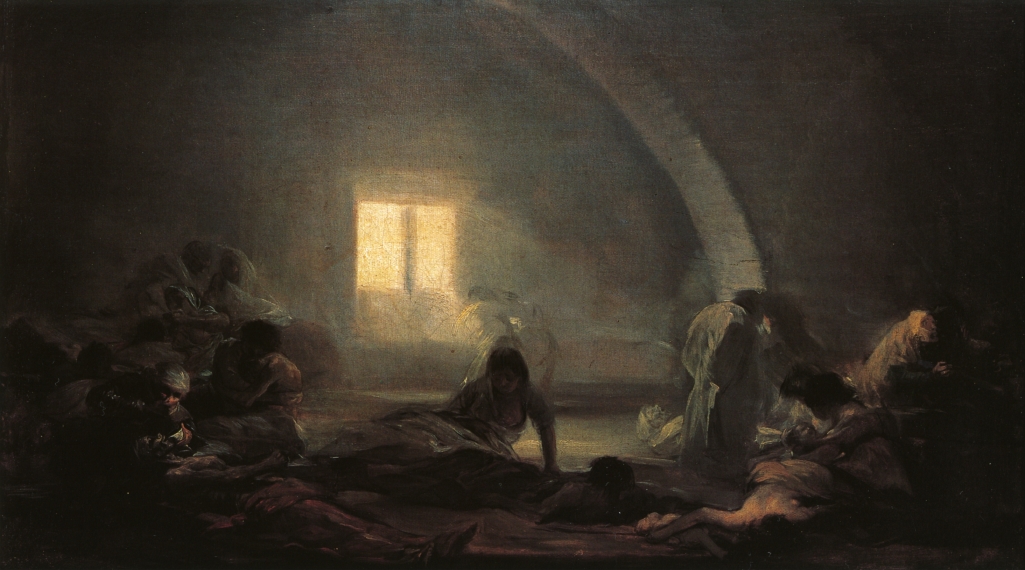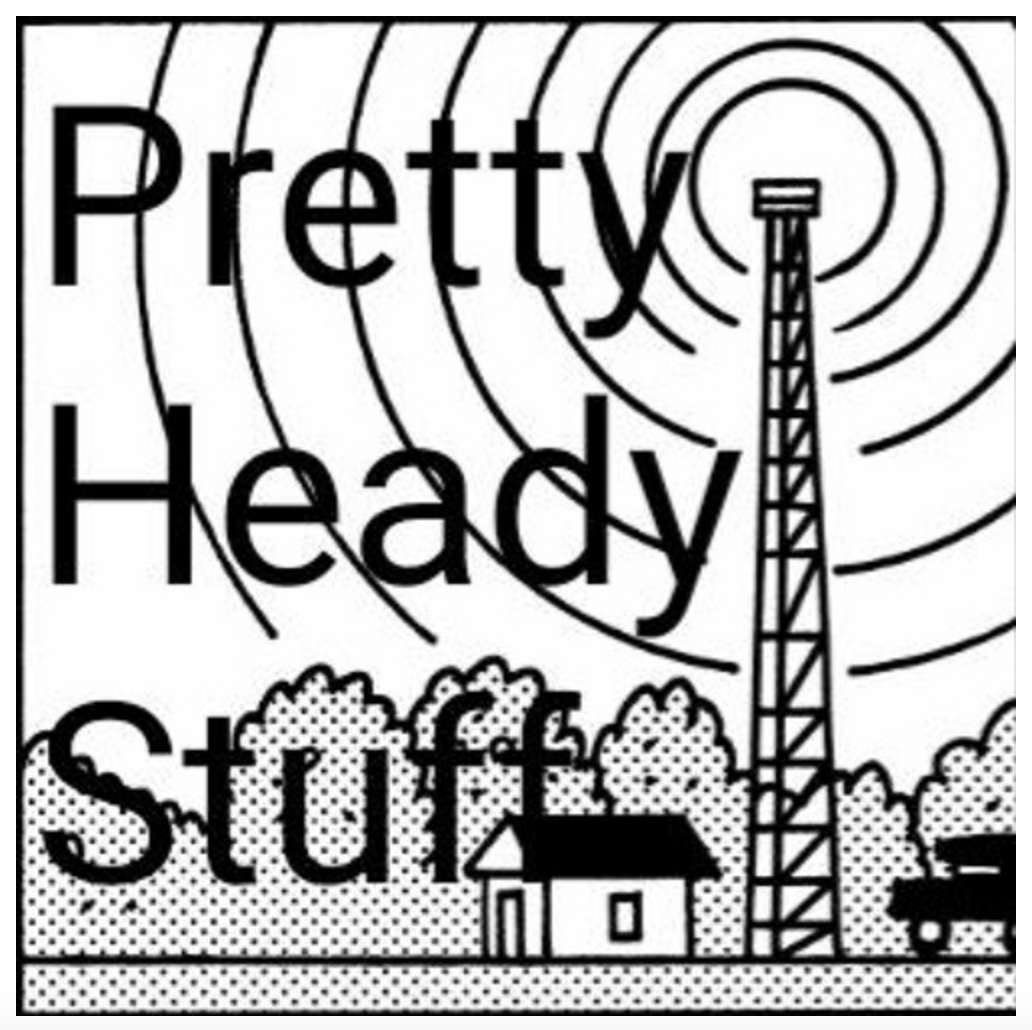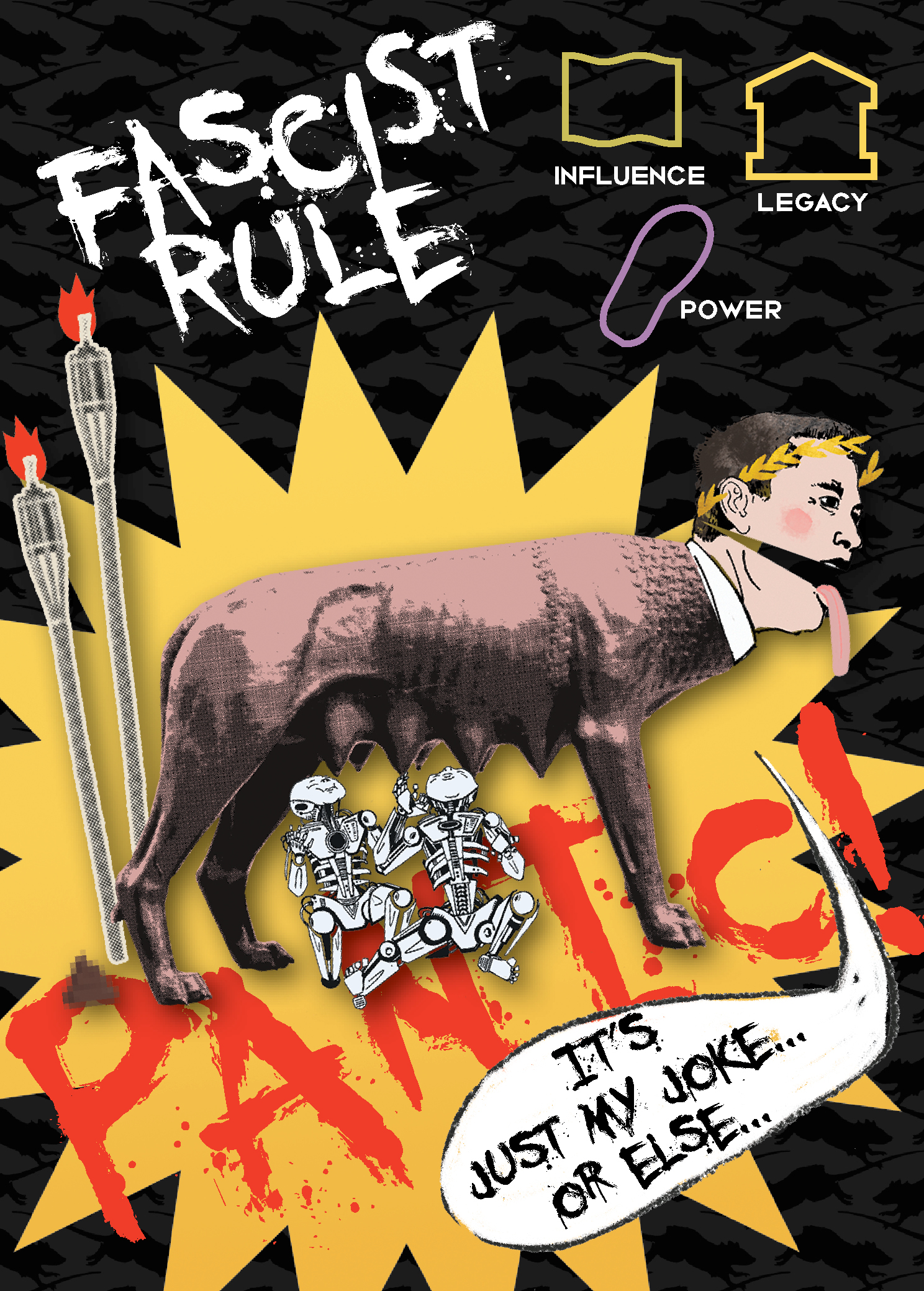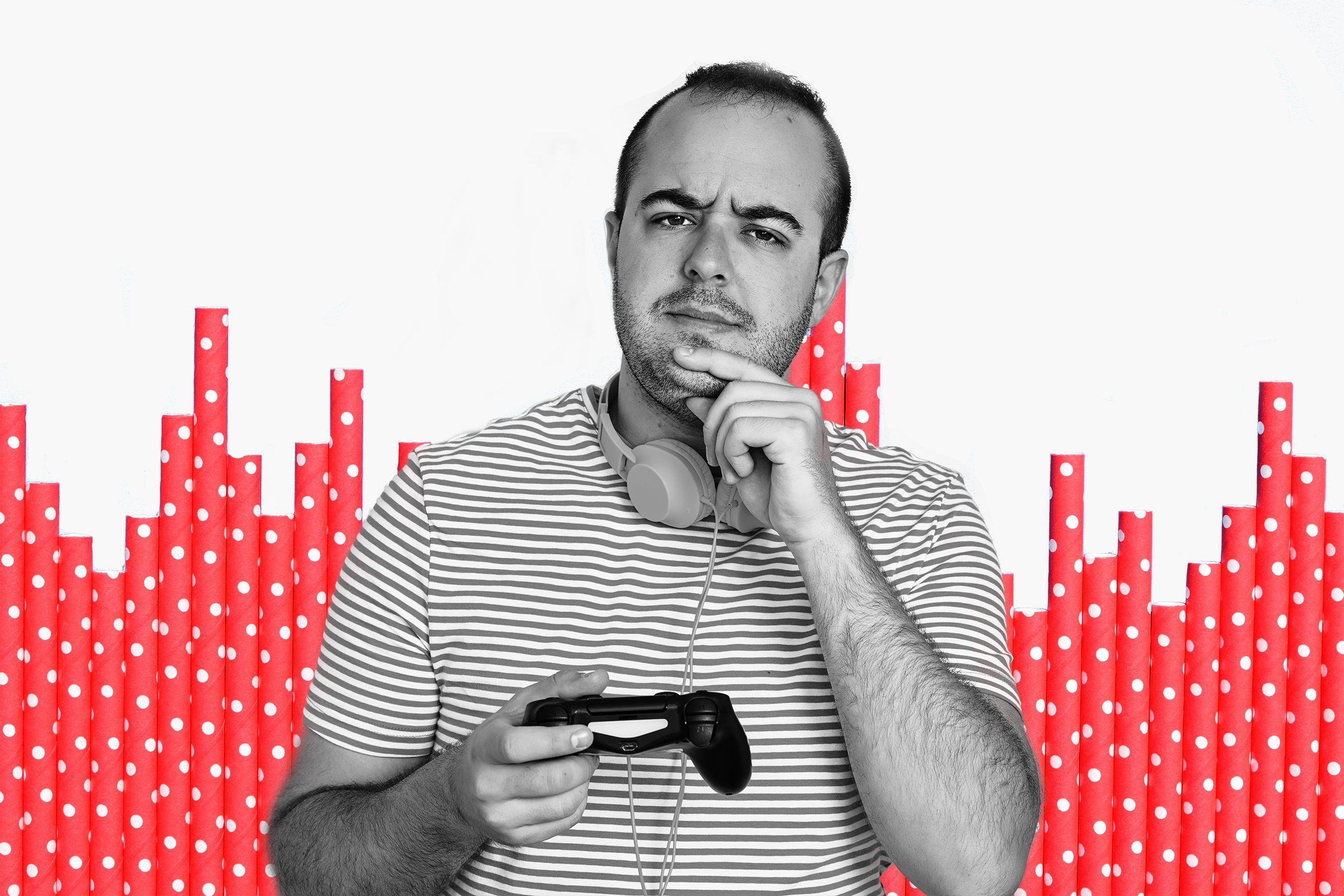& reviews
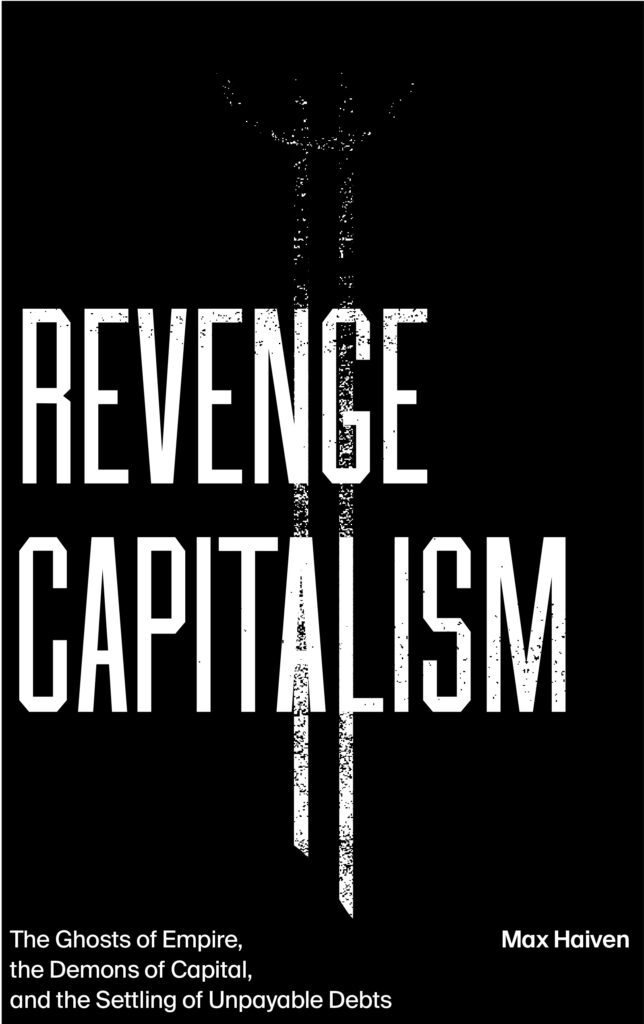
Revenge Capitalism
The Ghosts of Empire,
the Demons of Capital,
& the Settling of Unpayable Debts
by Max Haiven
May 2020
Capitalism is in a profound state of crisis. Beyond the mere dispassionate cruelty of ‘ordinary’ structural violence, it appears today as a global system bent on reckless economic revenge; its expression found in mass incarceration, climate chaos, unpayable debt, pharmaceutical violence and the relentless degradation of common life.
In Revenge Capitalism, Max Haiven argues that this economic vengeance helps us explain the culture and politics of revenge we see in society more broadly. Moving from the history of colonialism and its continuing effects today, he examines the opioid crisis in the US, the growth of ‘surplus populations’ worldwide and unpacks the central paradigm of unpayable debts – both as reparations owed, and as a methodology of oppression.
Revenge Capitalism offers no easy answers, but is a powerful call to the radical imagination.
Purchase
Worldwide from Pluto Press in print and digital formats
Paperback ISBN: 9780745340562
Hardcover ISBN: 9780745340555
eBook ISBN: 9781786806178
An eight-minute audio overview
A five-minute video
An 90-minute conversation
Endorsements
A deeply learned debt warrior, Haiven lays bare the abject cruelty of financial capitalism, and provides us with a rich supply of sources and arguments for a fightback that gives as good as it takes
Andrew Ross
author of 'Creditocracy and the Case for Debt Refusal'
Perhaps the most theoretically creative radical thinker of the moment
David Graeber
author of 'Debt: The First 5000 Years'
Max Haven retraces the roots of the current regression, of the reactionary trend that is driving the world toward a new darkness. These roots are humiliation and revenge. In my opinion this book is of strategical importance.
Franco 'Bifo' Berardi
author of 'Futurability The Age of Impotence and the Horizon of Possibility'
Table of contents and summaries
Click the books below to expand
The author outlines his motivations for writing the book as connected to his own family history of the Nazi holocaust and the revenge politics of settler colonialism.
An overview of the major themes in the book
This chapter draws on a wide archive of critical theory, on examples from popular culture, and on the rise of the revenge politics of Donald Trump to develop a materialist theory of revenge. By examining this intertwined histories of colonialism, patriarchy, and capitalism I want to frame revenge as, on the one hand, something that describes the (il) logic of systems of domination as well as a pervasive political sentiment to which those systems give rise. I argue that such systems project vengefulness onto those whom they oppress and exploit precisely to hide their patterns of systemic revenge. I frame revenge capitalism as a system in extremis which, like a mad king, appears to be taking needless, warrantless revenge on its subjects. But underneath are structural contradictions that generate pathological forms of accumulation and a dangerous reactionary political climate. To face these head-on, we will need to let go of our allergy to thinking seriously about revenge.
Shylock as a character is odious, petty, vain, self-centered, obsessive, and vindictive. Shylock as a revolutionary figure is glorious. There is not enough money in Venice to satisfy the debts that are owed him; after all, the wealth of Venice depended on him and other Jews acting as moneylenders, merchants, and intermediaries. They made Venice rich and he, through Venice’s own laws, will bring it down, forcing the Duke to accede to the brutal murder of this favorite son of the city right in his own court. The scales will not be balanced: they were never balanced to begin with, they were always tipped in the favor of the dominators. The scales will be destroyed.
This chapter provides a reading and a contextualization of three recent performative public artworks to map the way unpayable debts manifest across politics, economics, culture, and society under the global order of financialized capitalism today. By unpayable debts I have two tendencies in mind. On the one hand, debts from above: the proliferation of punitive and vindictive financial debts that cannot be repaid that characterize what I am calling revenge capitalism; on the other, debts from below: the subterranean, collective moral or political debts of history (for colonialism, slavery, and structural violence) that, though they are not honored by the institutions of revenge capitalism, can offer catalysts for the radical imagination.
…we dream, over and over, of a revenge we know ought to befall us precisely to endlessly forestall having to take action and make societal and economic change that would avert the cause for that mythical revenge. In the kind of vengeful human (metahuman) subjecthood we project onto Moby Dick and other of natures’ avengers, we paint ourselves as helpless in the face of our urges. Like the bloodthirsty whale, we cannot help what we do, and thus we deserve to be annihilated by that which we have created.
This chapter seeks to demonstrate that, in spite of the claims of neoliberal theorists who frame capitalist money as a singular social technology of peace, it can fruitfully be understood as a medium of systemic and structural violence and revanchism. I begin by recalling the early history of the (vindictive) monetary colonization of Turtle Island (North America) before telling three stories about the way proletarians responded to the revenge capitalism by appropriating and repurposing money as a platform for imagination and solidarity.
What, by contrast would a reality show called Avenging Body look like, by which I mean a show that, rather than fixating on a form of revenge within the moral economy of oppression that caused the injury, dreamed of a form of collective vindication that abolished the source of that injury? Of course, no such show could exist: it would contradict the entire logic of the genre, and the culture industry that created the genre. Though a paltry and sorry excuse for a revenge fantasy, Revenge Body is one of a wide range of mass produced cultural artifacts that seizes upon the experience of alienation and disposability germane to what I am calling revenge capitalism and offers an almost narcotic tonic.
Both V for Vendetta and Joker are means by which Hollywood, for all its contradictions as a capitalist industry, both processes and co-opts social movements symbolism, but, at the same time, provides semiotic and narrative resources for popular mobilization…
This chapter is about the dead zones that grow around the world and inside each of us under revenge capitalism. It’s about the numb but panicked apathy, the overstimulated stagnation, and the blindered fixation on survival that strips us of our empathy and imagination.
…whereas revenge envisions the revisiting of a harm or a debt on its author in the same or a similar form in which it was issued, avenging strives to abolish the order or economy of power that licensed, authorized, or enabled that violence in the first place. An avenging imaginary is not satisfied to turn the tables but seeks to overturn them. An avenging imaginary does not simply dream of redistributing the winners and losers, the debtors and the creditors, the oppressors and the oppressed, but yearns to abolish the very foundations of the moral, political, and economic order on which those injustices are erected. In the most basic terms, an avenging imaginary dreams of revenge against a system, not (only) its agents and beneficiaries. Whereas revenge fantasies are often fixated on Others who come to stand in for systems, an avenging imaginary is informed by a complex understanding of the way individuals are made to (or choose to) become replaceable operatives within such systems. Whereas revenge fantasy speaks to an isolated fixation, an avenging imaginary emerges from and helps to reproduce sustained collective action.
Revenge is the reckless determination that that which you love has value in a world where it is rendered worthless…
The arrival of the COVID-19 pandemic in early 2020, unfolding in Europe as I write these words, seems to mark an epochal shift. In this extended winter, as borders close, as quarantines multiply, as people succumb and recover, there is a strong sense that, when the spring finally arrives we will awaken in a drastically changed landscape. Those of us now in isolation, in spite of our fear and frustrations, in spite of our grief (for those who have died or may die, for the life we once lived, for the future we once hoped for), there is also a sense we are cocooned, transforming, waiting, dreaming. True: Terrors stalk the global landscape, notably the way the virus will prey upon those we, as a society, have already abandoned or devalued. So many of us are already disposable, so many of us are only learning it now, too late. Then there is the dangerous blurring of the line between humanitarian and authoritarian measures. There is the geopolitical weaponization of the pandemic. But when the Spring comes, as it must, when we emerge from hibernation, it will be a time of unprecedented global struggle against both the drive to “return to normal” ( the same normal that set the stage for this tragedy) and the “new normal” which might be even worse. Let us prepare as best we can, for we have a world to win.



